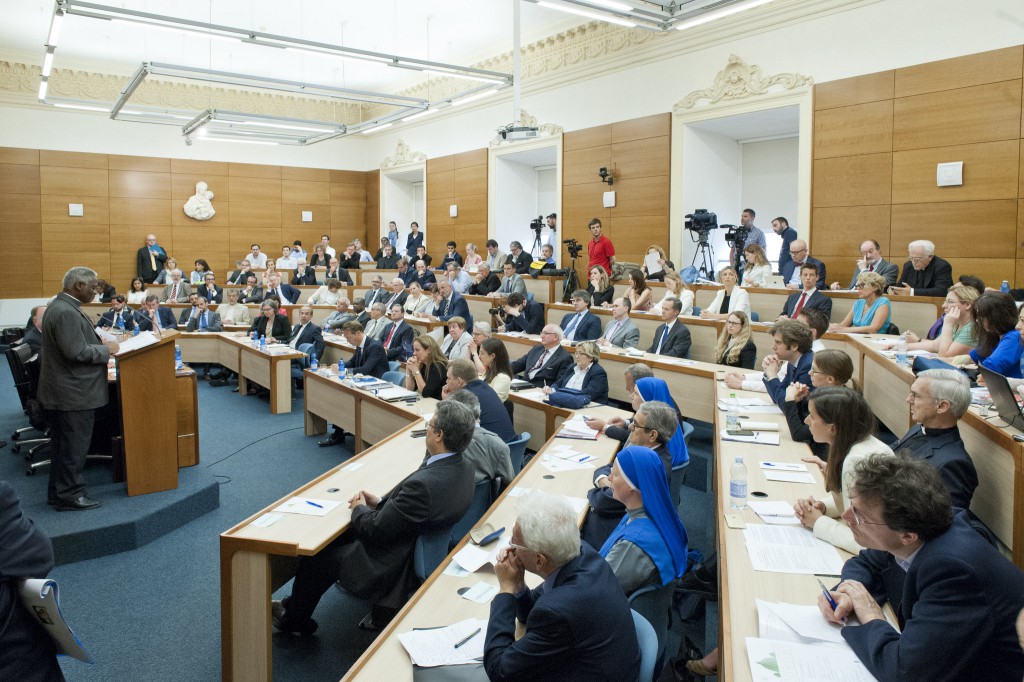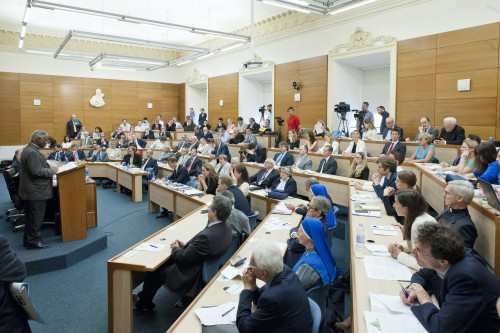21st May 2015
Church, government, business: a climate change alliance


This week I attended an important conference at the Pontifical Santa Croce University, on “The New Climate Economy. How Economic Growth and Sustainability Can Go Hand in Hand”. It was jointly organised by the Dutch Embassy to the Holy See and the Pontifical Council for Justice and Peace, and brought together leading political figures, business people, diplomats and churchmen to address the question of climate change and economic growth ahead of the publication next month of Pope Francis’s much anticipated encyclical on the environment.
Several essential points emerged from the meeting:
– Climate change is a fact. It is created by global warming. Global warming is a result of human carbon emissions. The former President of Mexico, Felipe Calderon (now Chair of the Global Commission on Economy and Climate), set out the issue thus, in stark terms. He was also clear that there was no rational choice between economic growth and tackling climate change; the two can (and should) go hand in hand. As the poor are disproportionately affected, tackling climate change is also a matter of justice. And on that Pope Francis is, in Calderon’s words, “an important ally”.
– Unilever CEO Paul Polman set out the challenge: a lack of global governance (something the Paris Climate change talks later this year will hopefully start to put right), and real planetary boundaries. Unsustainable development therefore represents both a moral and an existential crisis, for business as much for government. As Holy See Secretary of State, Cardinal Parolin, put it in his statement to the conference: “When the future of the planet is at stake, there are no political frontiers, barriers or walls behind which we can hide to protect ourselves from the effects of environmental and social degradation. There is no room for the globalisation of indifference, the economy of exclusion or the throwaway culture so often denounced by Pope Francis”.
– Facing this reality, and the challenge it throws up, is a developing alliance of government, business and civil society including, importantly, the Catholic Church. Cardinal Donald Wuerl, Archbishop of Washington, reminded the conference of Pope Benedict’s call in his encyclical Caritas in Veritate for “fraternal and economic development”. “Legitimate economic progress”, Cardinal Wuerl added, “need not be compromised by protecting the environment.”
The reality of climate change is that we’re all in it together. And as the hard-headed business entrepreneurs at the conference explained, inaction will be far more costly than action. Government must set the global governance framework. Business will bring the enterprise and innovation. Religious leaders will argue the moral case, based especially around the need to accept our inter-generational responsibility towards those who follow us. Pope Francis’s encyclical is likely to provoke and challenge. Watch out for it next month!